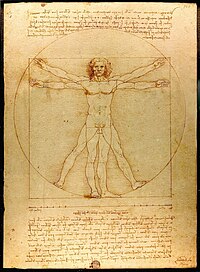
Back الحركة الأخلاقية Arabic Ethische Bewegung German Movimiento ético Spanish התנועה האתית HE Gerakan etis ID Motus ethicus Latin اخلاقي غورځنګ Pashto/Pushto Movimento ético Portuguese Етички покрет Serbian 伦理运动 Chinese
| Ethical movement | |
|---|---|
 The logotype of the Ethical Humanist movement | |
| Scripture | None |
| Headquarters | New York City |
| Founder | Felix Adler |
| Origin | 1877 |
| Congregations | about 30 |
| Number of followers | Less than 10,000 (2014)[1] |
| Official website | www.aeu.org |
| Part of a series on |
| Humanism |
|---|
 |
| Philosophy portal |
The Ethical movement (also the Ethical Culture movement, Ethical Humanism, and Ethical Culture) is an ethical, educational, and religious movement established in 1877 by the academic Felix Adler (1851–1933).[2] In an effort to develop humanist codes of behavior, the Ethical movement emerged from the moral traditions of the secular societies of Europe and the secular society of the 19th-century United States. In practice, the Ethical movement organized themselves as two types of organization: (i) a secular humanist movement and (ii) a predominantly moral movement with a religious approach.
In the U.S., Ethical movements became organizations for the advancement of education (e.g., the American Humanist Association and the American Ethical Union), whereas in the U.K., the Ethical movements became the South Place Ethical Society and the British Ethical Union—organizations which consciously transcended the congregational model of organization as the Conway Hall Ethical Society, the Humanists UK, and the Sunday Assembly.
Internationally, Ethical Culture and secular humanist organizations organized jointly; the American Ethical Union and the British Ethical Union were the founders of Humanists International, whose original name, the "International Humanist and Ethical Union", reflected the philosophical unity of the Ethical Culture movement. The premise of Ethical Culture is that honoring and living in accordance with a code of ethics is required to live a meaningful life and for making the world a better place for all people.[3][4]
- ^ "The original 'atheist church': Why don't more atheists know about Ethical Culture?". October 2014. Retrieved 25 June 2018.
- ^ From Reform Judaism to Ethical Culture: The Religious Evolution of Felix Adler Benny Kraut, Hebrew Union College Press, 1979
- ^ Cite error: The named reference
BDwas invoked but never defined (see the help page). - ^ Cite error: The named reference
Deedwas invoked but never defined (see the help page).
© MMXXIII Rich X Search. We shall prevail. All rights reserved. Rich X Search